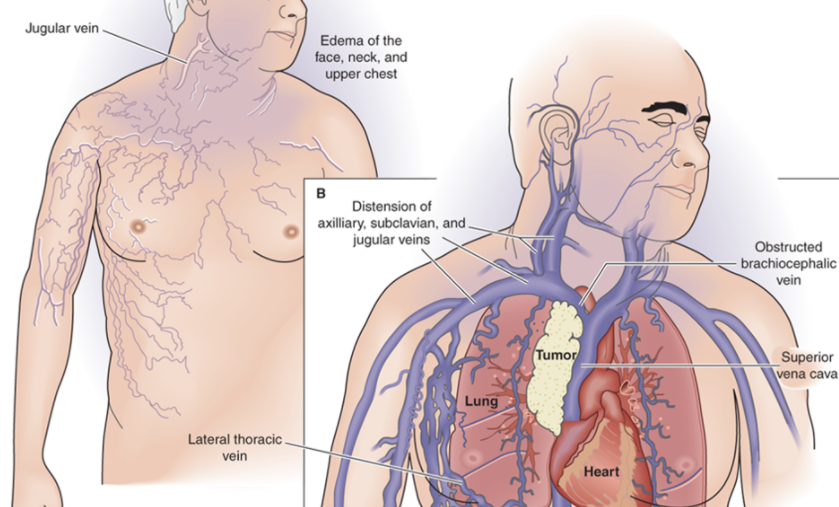

Symptoms
The SVC obstruction’s biggest symptom is shortness of breath. There are many other symptoms like the swelling of veins in the arms, chest, or neck. There can also be swelling in the neck, face, or arms. The patient can also experience headaches and cough.
Diagnosis
The condition can be diagnosed through the usage of imaging techniques like contrast-enhanced MRI, CT. There can also be a use of a technique called digital subtraction angiography for the diagnosis of SVC Obstruction.
Treatment
If cancer is the cause of the obstruction, it can be treated by radiation therapy and chemotherapy. A patient can be responsive to this treatment during the time of several weeks.
There can also be SVC stenting used for treatment. In this process, the interventional radiologist inserts a metal stent in the blocked or narrowed vein so it can be opened. This procedure is a minimally invasive method that can be used as a standalone treatment method, or it can also be used in combination with other treatments.
Fluoroscopy will be used for the medical image guidance so that a catheter can be inserted in the large vein, which will go to the affected area, and a stent will be placed. In most of the cases, the symptoms seem to go away when the stent is placed. Mostly, it takes 24 to 48 hours.
Dr Nikolas Charalambous is named among the most prominent interventional radiologist. Get a free consultation for a minimally invasive treatment of brain, neck, and spine.